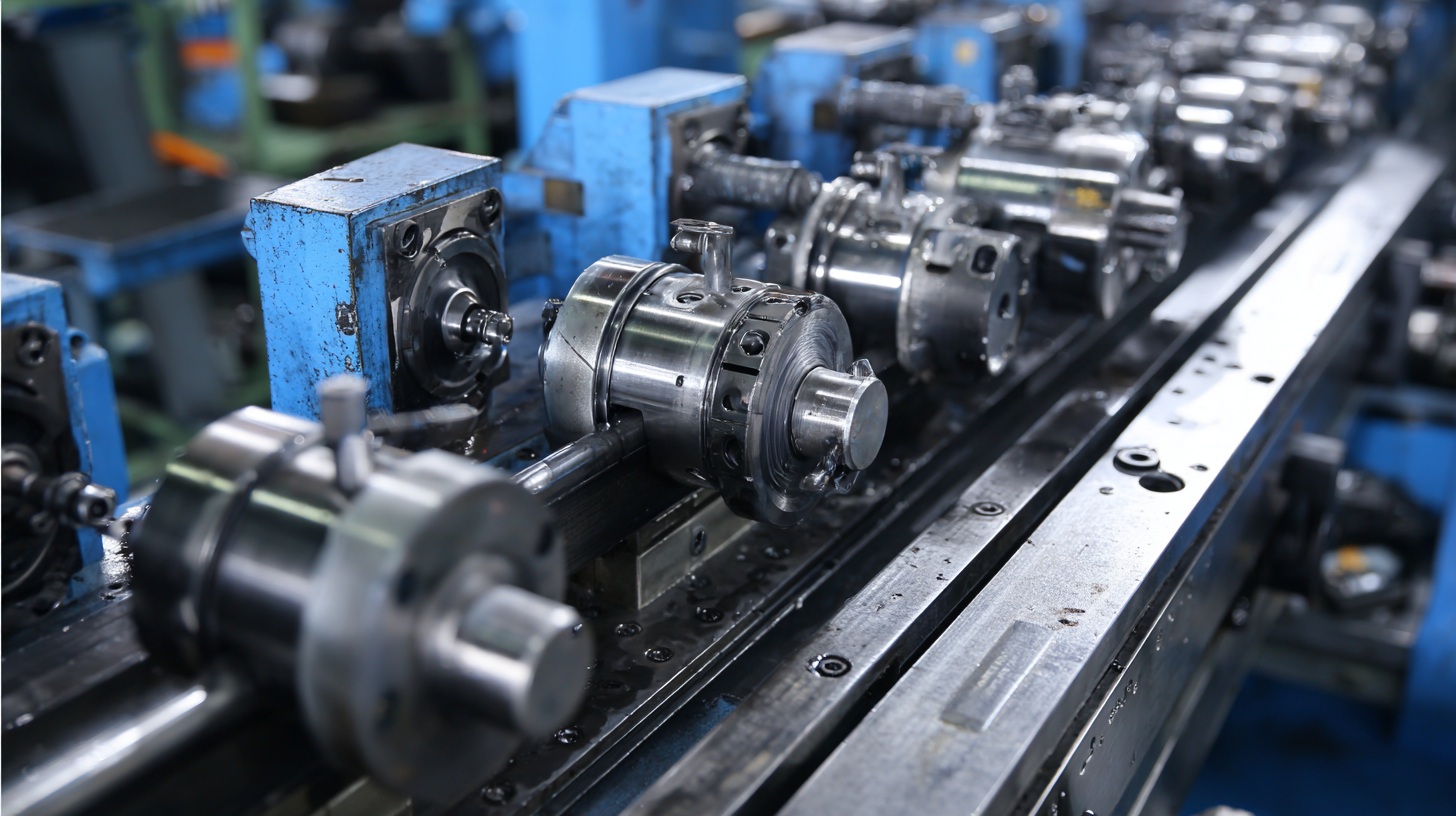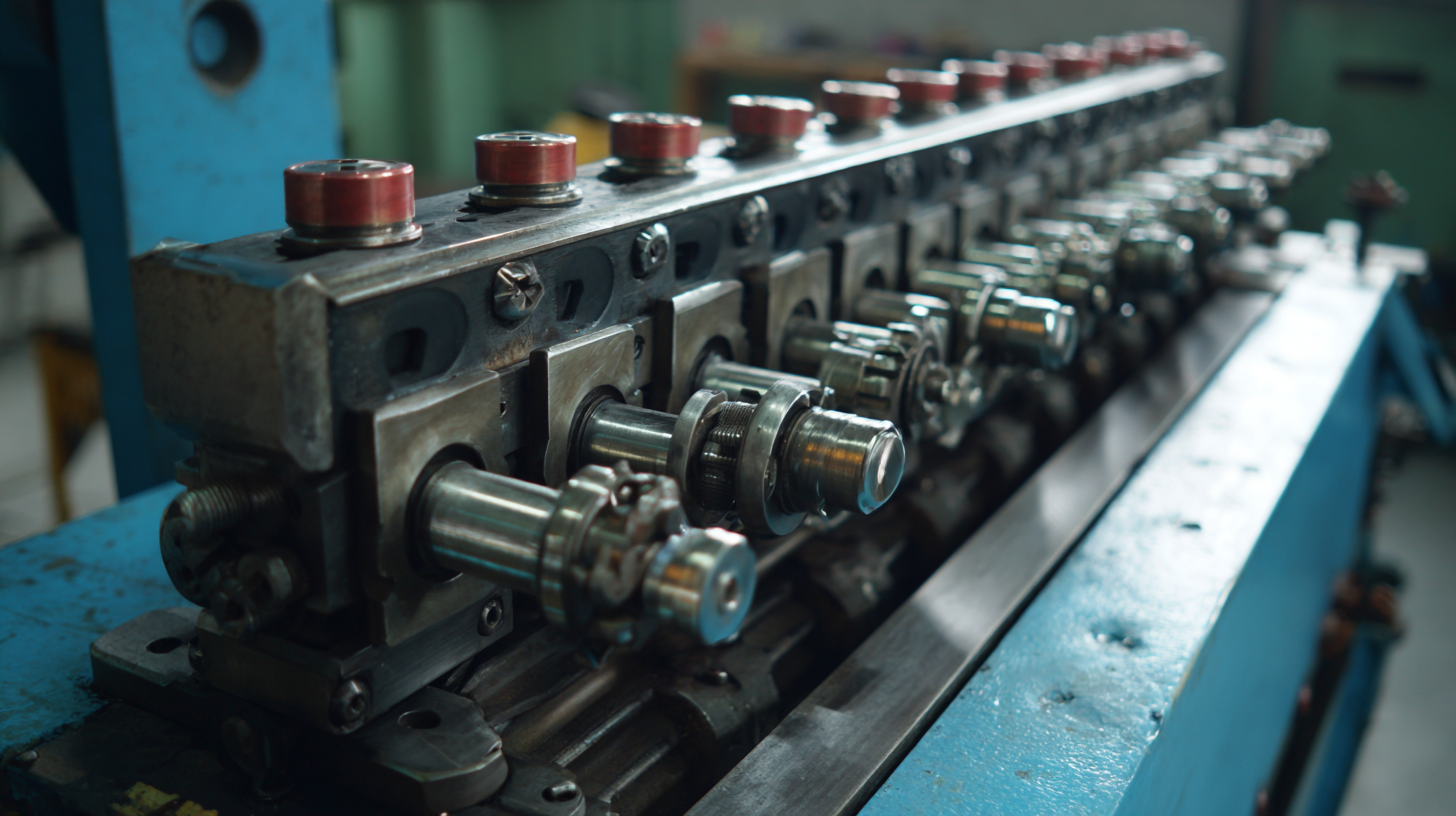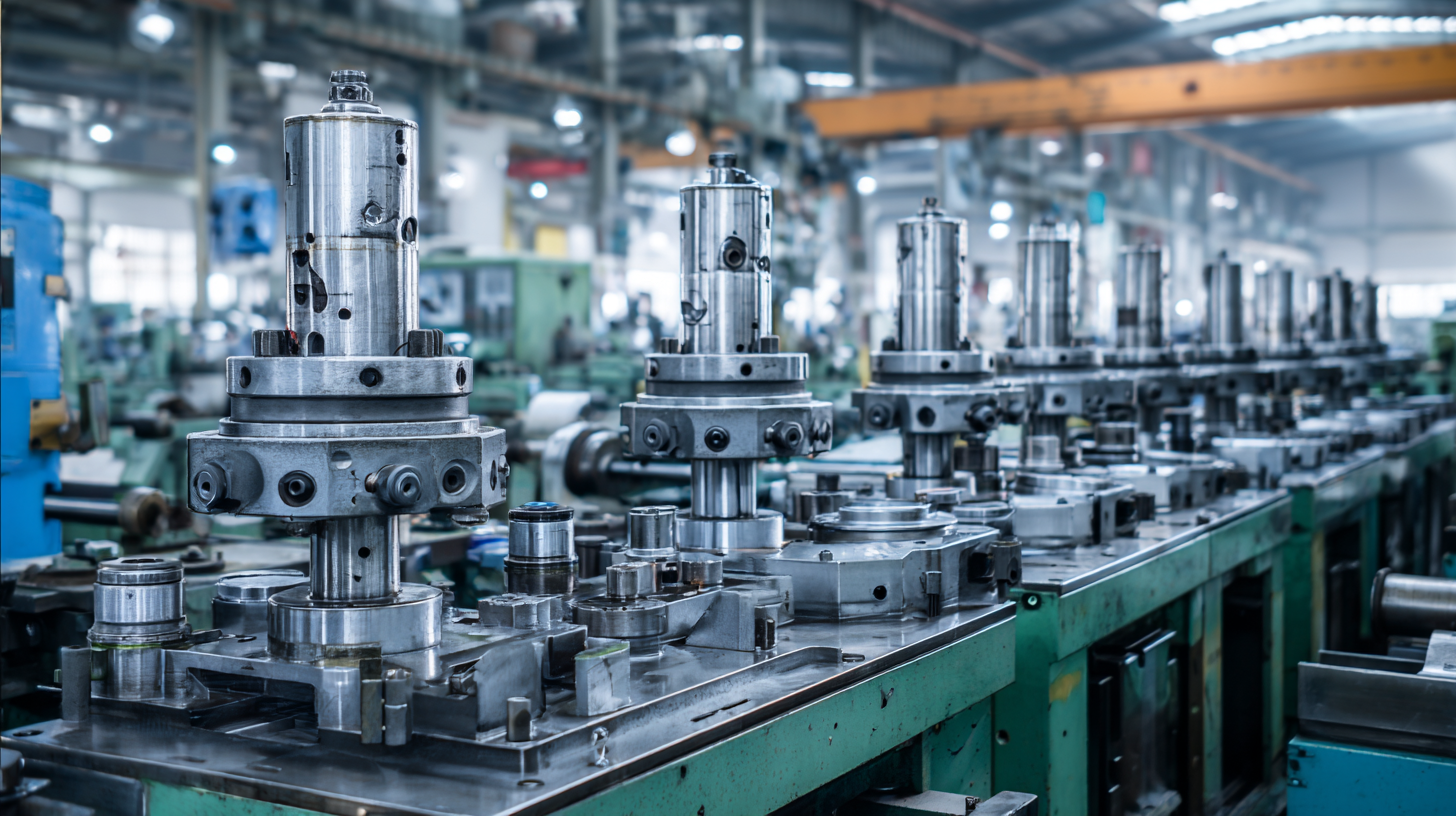
How to Navigate Import-Export Certifications for the Best Thread Rolling Machines Globally
In today's global manufacturing landscape, the demand for precision-engineered components has skyrocketed, significantly impacting the thread rolling machine market. According to a recent report by Market Research Future, the global market for thread rolling machines is expected to grow at a CAGR of 5.8% from 2021 to 2028, driven by advancements in industrial automation and rising manufacturing activities across various sectors. As companies aim to enhance productivity and ensure quality, navigating the complexities of import-export certifications becomes crucial.

This checklist will guide manufacturers and suppliers through the essential steps to achieve compliance and leverage the full potential of thread rolling machines in global markets, ultimately ensuring they remain competitive in an increasingly interconnected economy.
Understanding Import-Export Certifications for Machinery: A Comprehensive Overview
When it comes to importing and exporting thread rolling machines, understanding the intricacies of import-export certifications is crucial for ensuring compliance and maintaining a competitive edge in the global market. A recent report by MarketsandMarkets projects that the global machinery manufacturing industry is expected to reach $8 trillion by 2025, with an increasing demand for high-quality equipment. Compliance with international standards, such as ISO 9001 for quality management systems, is essential. This certification not only enhances operational efficiencies but also opens doors to markets that require stringent adherence to safety and reliability standards.
Moreover, regional certifications such as CE in Europe and UL in North America further play a pivotal role in the trade of machinery. According to a study by Statista, over 40% of manufacturers cite compliance issues as a major barrier to global trade. Navigating these certification requirements can be complex and often involves extensive documentation and testing. Companies need to invest in understanding the specific regulatory landscapes of target markets, as failing to secure the necessary certifications can lead to costly delays and reputational risks in the competitive field of machinery exportation.
Global Thread Rolling Machines Import-Export Certifications
Key Certifications Required for Thread Rolling Machines: What You Need to Know
When it comes to importing and exporting thread rolling machines, understanding the key certifications required is pivotal for ensuring compliance and success in global markets. Certifications such as ISO 9001, which addresses quality management systems, and CE marking, which indicates conformity with health, safety, and environmental protection standards, are crucial for manufacturers. These certifications not only enhance product reliability but also help in establishing trust with prospective buyers. According to a recent industry report, companies that are ISO certified witness a significant 20% increase in sales due to enhanced customer confidence.
In addition to ISO and CE certifications, the importance of compliance with local regulations cannot be overstated. For instance, compliance with RoHS (Restriction of Hazardous Substances) and REACH (Registration, Evaluation, Authorization, and Restriction of Chemicals) directives ensures that the machines do not contain harmful substances. A survey noted that 75% of buyers prioritize certified products, communicating a clear market demand for machines that meet strict safety and environmental standards. Therefore, obtaining these certifications not only streamlines the import-export process but also positions manufacturers favorably in the competitive landscape of thread rolling machines globally.

Navigating International Trade Regulations: Tips for Importing and Exporting
Navigating international trade regulations can be a daunting task for businesses in the thread rolling machine sector. According to a report by the International Trade Centre, over 60% of importers and exporters struggle with compliance issues related to varying certification requirements across countries. The complexities arise from differing standards set by regulatory bodies, which can significantly impact time-to-market and operational costs. This underscores the necessity for industry players to stay informed and adaptable.
To successfully traverse these regulatory landscapes, businesses should consider investing in comprehensive training programs for their staff. A study by the World Bank indicated that firms with dedicated trade compliance teams are 35% more likely to overcome regulatory hurdles efficiently. Additionally, utilizing platforms like the U.S. Commercial Service's trade advisory services can provide essential insights into country-specific requirements, tariffs, and documentation needed for smooth customs clearance. By arming themselves with the right knowledge and tools, companies can enhance their competitiveness and ensure compliance in the ever-evolving global market.
Choosing the Right Thread Rolling Machine: A Guide to Global Standards
When selecting the right thread rolling machine, it's essential to consider global standards that impact both production efficiency and compliance. Understanding certification requirements can greatly enhance your manufacturing processes and ensure that your equipment meets international safety and quality benchmarks. Look for machines that comply with ISO standards, as these certifications often indicate higher reliability and performance.
**Tip:** Before making a purchase, verify the certifications relevant to your industry. This will not only streamline your import-export process but also ensure that your production meets the necessary regulations in various markets.
Another important factor to consider is the machine's adaptability to different materials and thread types. The right machine should offer versatility and precision, allowing you to produce a wide range of products without compromising quality.
**Tip:** Seek machines with adjustable settings or features that cater to diverse threading tasks. This flexibility can lead to greater efficiency and reduce downtime during production changes.
How to Navigate Import-Export Certifications for the Best Thread Rolling Machines Globally - Choosing the Right Thread Rolling Machine: A Guide to Global Standards
| Machine Type | Certification Standards | Country of Compliance | Max Rolling Diameter (mm) | Max Rolling Length (mm) | Operating Speed (rpm) |
|---|---|---|---|---|---|
| Universal Thread Rolling Machine | ISO 9001, CE | Germany | 25 | 120 | 200 |
| Automatic Thread Rolling Machine | ANSI/ISO, RoHS | USA | 30 | 150 | 250 |
| Inverted Thread Rolling Machine | JIS, OSHA | Japan | 40 | 160 | 220 |
| CNC Thread Rolling Machine | DIN, CE | Switzerland | 35 | 140 | 300 |
| Hydraulic Thread Rolling Machine | BS EN, ISO 14001 | UK | 50 | 180 | 180 |
Common Challenges in Certification Processes for Thread Rolling Machines and How to Overcome Them
Navigating the certification processes for thread rolling machines can be a daunting task for manufacturers and exporters. One of the most common challenges faced is the variation in certification requirements across different countries. Each region may have its own set of regulations and standards, making it crucial for companies to conduct thorough research and ensure that their machines meet local compliance. To overcome this challenge, it's advisable to work closely with local regulatory bodies or seek guidance from industry experts who can provide insights on specific requirements.
Another significant hurdle is the complexity and length of the certification process itself. Many companies find it overwhelming to gather the necessary documentation and technical specifications needed for the certification. To streamline the process, businesses should develop a detailed checklist that outlines all required documents and deadlines. Additionally, establishing relationships with certification bodies can facilitate smoother communication, allowing for quicker responses to any questions or clarifications required during the certification process. By taking these proactive steps, manufacturers can navigate the import-export certification landscape with greater ease and efficiency.

